12. GLORY

THE LAST DAYS OF THE GILDED AGE
OTTOMAN TURKEY

THE LAST DAYS OF THE GILDED AGE
OTTOMAN TURKEY
 The Ottoman Turk "Sick Man of Europe"
The Ottoman Turk "Sick Man of Europe"
 The crushing weight of foreign debt
The crushing weight of foreign debt
The textual material on page below is drawn directly from my work
A Moral History of Western Society © 2024, Volume Two, pages 59-61.
THE OTTOMAN TURK "SICK MAN OF EUROPE" |
| But
if the Tsar was having a hard time hanging onto the lead in Russia, the
Ottoman Sultan was having an even harder time maintaining his authority
within the fast decaying Ottoman Empire. It seemed at times that
the only thing holding the Empire together was the fear by France and
Britain (especially Britain) that should the Ottoman Empire collapse,
their major interests in the Eastern Mediterranean would be threatened
deeply. Thus it was that they had intervened in the Crimean War
between Turkey and Russia on Turkey's side ... not so much out of an
interest in a Turkish victory as instead a fear of a Russian victory
and the position that would give Russia in the Eastern Mediterranean. Thus holding the decaying Ottoman Empire together was the fact that the European powers feared that carving up the empire (as they had done to Poland) would merely benefit their fellow European competitors more than themselves. Similarly, ethnic jealousies within the empire kept Turkish political reformers from acting in unison to revitalize their empire. Strong leadership by the sultans would have helped greatly. But such leadership was sadly lacking. At a time (the 1400s and 1500s) when there was no moral argument being issued by political philosophers against the principle of rule by emperors, and when at the same time the Ottoman Empire was blessed by emperors or sultans of great ability, the Ottoman Empire was not only a stable political unit ... it was one of Europe’s great powers. But by the end of the 1800s those days were over ... on both counts. Not only was rule by imperial figures under attack philosophically, the Ottoman Empire had developed in ways guaranteed to bring forward a whole series of sultans not really up to the demands of their office. |
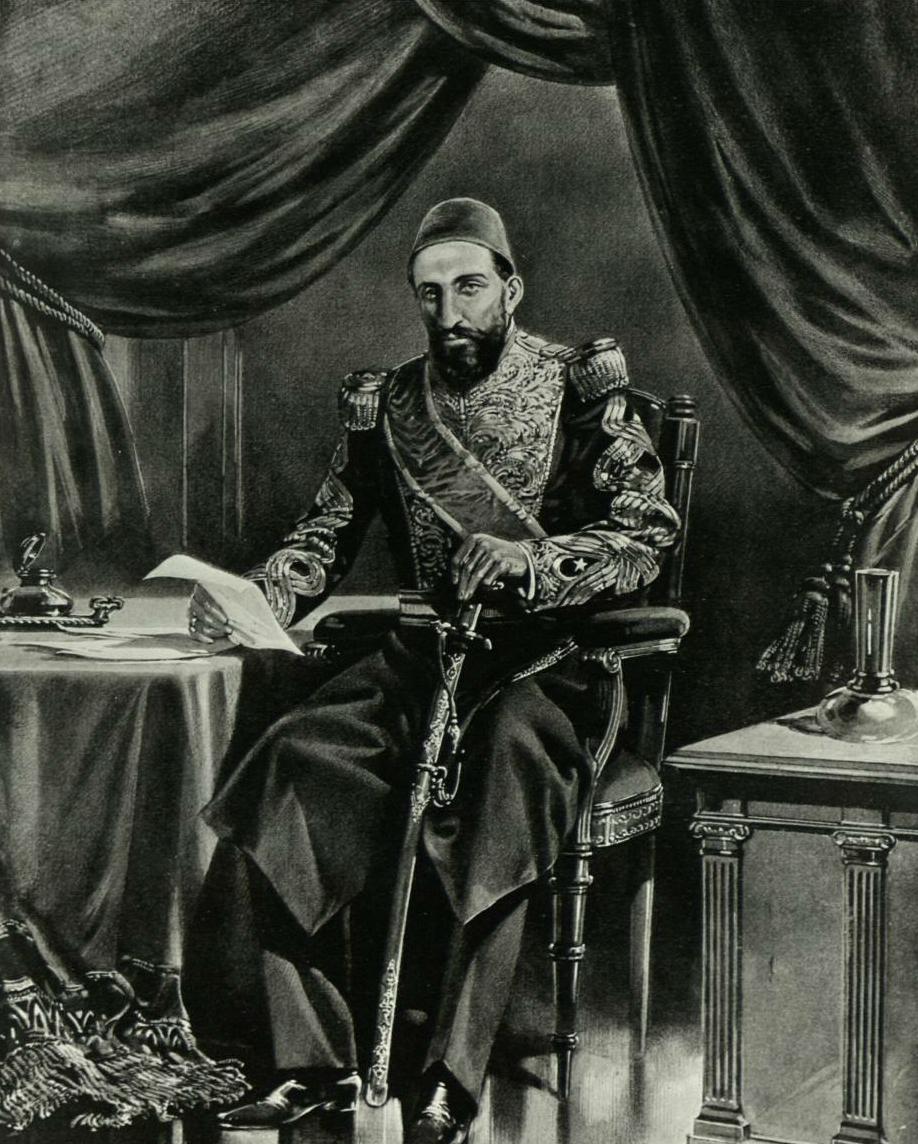 Abdul Hamid II (Turkish Sultan
1876-1909)
Abdul Hamid II (Turkish Sultan
1876-1909)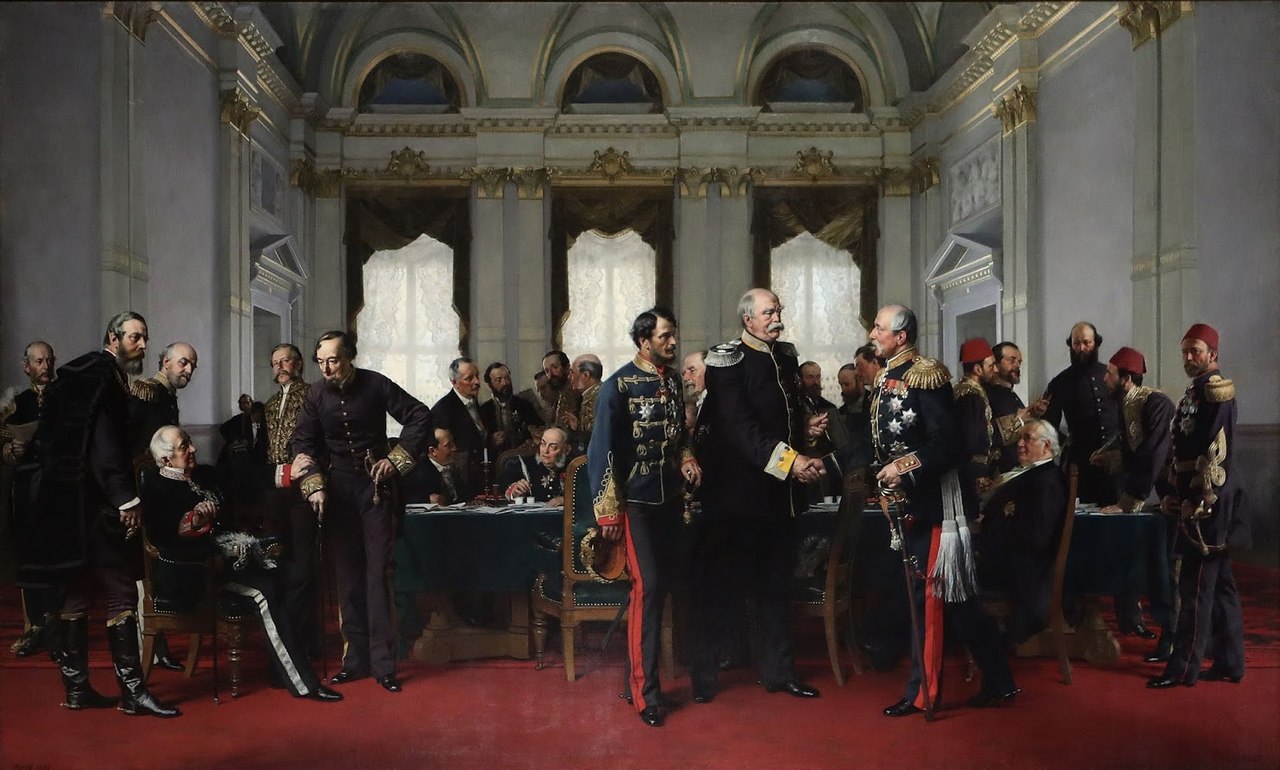
... deciding the boundaries of the states carved out of the Ottoman Empire
CORRUPTION AND DECLINE |
THE CRUSHING WEIGHT OF FOREIGN DEBT |
THE YOUNG OTTOMANS |
| In the mid-1860s a group of Turkish intellectuals formed a secret society, the Young Ottomans, whose focus was on modernizing the political structure of the empire. They hoped not only to bring the empire up to the constitutional standards of the constitutional monarchies of Western Europe ... but also to create a broad Ottoman "nationalism" that would develop a sense of Ottoman pride, a super-nationalism designed to bridge the ethnic differences dividing the various national groupings within the empire. In 1876 they seemed to have made great progress toward that goal when the new Sultan Abdül Hamid II (reigned 1876-1909) did indeed extend to the empire a constitution designed to make the Ottoman government conform more closely to the West European version. But only two years later the sultan reversed himself completely in the face of a growing conflict with his new parliament and he simply suspended the new constitution and returned the empire under his rule as absolute monarch. At this point the animosities separating the various ethnic groups making up the empire simply magnified. |
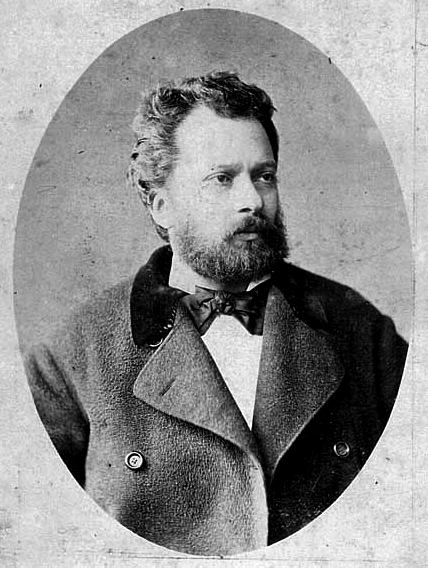
Namik Kemal (above) and Ibrahim Şinasi (below) who worked hard as writers to get the Sultanate under constitutional authority
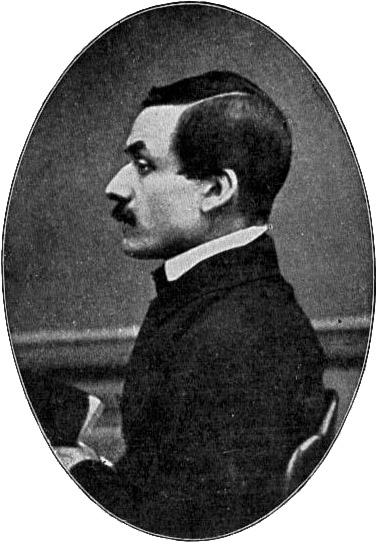
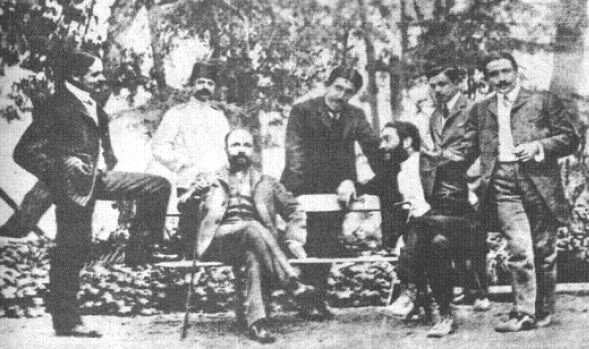
Some of the Young Ottomans (the 1860s)




